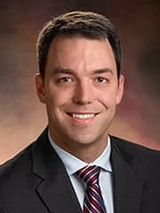Implementation science (IS), which seeks to understand how interventions work in real-world settings and test approaches to improve their uptake and use, is underused in pediatric oncology, according to a new paper led by Children’s Hospital of Philadelphia (CHOP) and the University of Pennsylvania. The review paper, published in Pediatric Blood and Cancer, calls for more research in this area to improve patient care.

“Implementation science is important for pediatric oncology because it informs delivery of evidence-based care and addresses key facets of care delivery including healthcare structures, patient and provider behaviors, health disparities and patient outcomes,” said first author Charles A. Phillips, MD, MSHP, MBMI an attending oncologist in the Cancer Center at Children’s Hospital of Philadelphia. “Implementation science has the potential to inform and improve care for pediatric cancer patients not by trying to speed cancer-directed therapy interventions, but rather by focusing on questions not addressed by the remarkable clinical trial infrastructure that has driven pediatric cancer research thus far.”
IS focuses on the implementation of interventions, rather than the interventions themselves. The field complements – but is distinct from – clinical efficacy and effectiveness research.
The researchers analyzed any studies published before 2021 for their relation to IS and pediatric oncology. Of 216 articles initially reviewed, nine were selected as specific to IS and pediatric oncology. All nine examined oncologic supportive care, cancer prevention, or cancer control.
Based on these findings, the research team concluded that not only were there few examples of IS in pediatric oncology, but also that the field appears underdeveloped. They pointed to areas for future focus, including psychosocial care, health equity and assessing interventions for patients not enrolled in major studies.
Read more about their findings here.
Featured in this article
Specialties & Programs
Implementation science (IS), which seeks to understand how interventions work in real-world settings and test approaches to improve their uptake and use, is underused in pediatric oncology, according to a new paper led by Children’s Hospital of Philadelphia (CHOP) and the University of Pennsylvania. The review paper, published in Pediatric Blood and Cancer, calls for more research in this area to improve patient care.

“Implementation science is important for pediatric oncology because it informs delivery of evidence-based care and addresses key facets of care delivery including healthcare structures, patient and provider behaviors, health disparities and patient outcomes,” said first author Charles A. Phillips, MD, MSHP, MBMI an attending oncologist in the Cancer Center at Children’s Hospital of Philadelphia. “Implementation science has the potential to inform and improve care for pediatric cancer patients not by trying to speed cancer-directed therapy interventions, but rather by focusing on questions not addressed by the remarkable clinical trial infrastructure that has driven pediatric cancer research thus far.”
IS focuses on the implementation of interventions, rather than the interventions themselves. The field complements – but is distinct from – clinical efficacy and effectiveness research.
The researchers analyzed any studies published before 2021 for their relation to IS and pediatric oncology. Of 216 articles initially reviewed, nine were selected as specific to IS and pediatric oncology. All nine examined oncologic supportive care, cancer prevention, or cancer control.
Based on these findings, the research team concluded that not only were there few examples of IS in pediatric oncology, but also that the field appears underdeveloped. They pointed to areas for future focus, including psychosocial care, health equity and assessing interventions for patients not enrolled in major studies.
Read more about their findings here.
Contact us
Jennifer Lee
Cancer Center